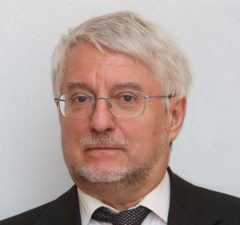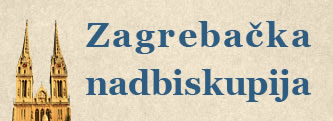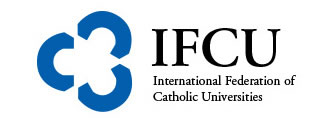

IMPORTANT DATES
15th May 2023
Call for abstracts open
22nd October 2023.
Abstract submission deadline
25th October 2023
Notification of abstract acceptance
24th November 2023
Programme of the conference
1st January 2024
Call for manuscript submission
12th April 2024
Manuscript submission deadline
Thematic areas
- coping and adaptation of individuals and communities in social changes and crises (e.g. war, refugee crisis, migration, economic crisis, pandemic)
- experiences and responses of individuals and communities to global and social changes (e.g. climate change, digital transformation, economic difficulties and poverty)
- risk and protective factors for the individual’s adaptation to new and changing circumstances and living conditionsmental health of children and adults in crisis
- biological response, physical health and well-being in stressful and changing life circumstances
- stressful and traumatic events as an opportunity for personal development and post-traumatic growth
- the development of sickness and psychopathology in stressful events and changed circumstances and living conditions
- prevention of negative outcomes due to changed life circumstances
- psychological health and well-being when dealing with non-normative life events in different periods of life
- adaptation of vulnerable groups to new and changed circumstances and living conditions
- coping with and adapting to changes in the family context
- adaptation of individuals and communities to changes in education and the world of work
- counseling and psychotherapy work and encouraging well-being and resilience when dealing with changes
- the role of psychological health professionals in promoting individual and community well-being and resilience
- management of individuals, groups and institutions during adaptation to new and changing life circumstances
- the role of multidisciplinary, cross-sector cooperation, cooperation between experts and the local community in adapting to social changes
- representations and perception of social changes and new living conditions in the media
- other topics
Keynote Speakers

Alessandro Antonietti
profesor psihologije i dekan Fakulteta za psihologiju na Katoličkom sveučilištu Svetog Srca u Milanu, Italija
Cognitive Flexibility: A Core Skill to Face Change
Abstract
Changes in the external world need open, dynamic, and malleable minds in order to be managed successfully. Hence, cognitive flexibility appears to be a crucial ability which enables individuals both to adapt to new situations as well as to transform their environment and themselves. The highlight will be put on the features of cognitive flexibility, meant as a mix of divergent/creative convergent/analytic processes. Reported will be some examples, stressing out the role of cognitive flexibility in facing the challenges associated with the COVID pandemic. Finally, described will be the ways to enhance cognitive flexibility, both in children and elderly people.
Short Biography

Prof. Giovanni A. Travaglino, PhD
Institute for the Study of Power, Crime, and Society | Department of Law & Criminology, Royal Holloway, University of London
How Organized Criminal Groups Impact Societies: Secret Power, Illegal Governance and Civic Relationships
Organized criminal groups have a significant global impact on public security and the economy. More recently, empirical research has started assessing the socio-psychological correlates of criminal groups’ political influence. Criminal groups are capable of undermining governments’ prerogatives. They can replace the state in offering protection, affirming norms, and managing relationships and exchanges within communities. How do these groups gain the legitimacy necessary to engage in such activities? In this talk, I will discuss the idea that organized criminal groups can be conceived as a source of social order alternative to that of the state. I will explore evidence concerning the psychological underpinning that enables these groups to exert power and authority over communities. First, I will introduce a novel theoretical framework – Intracultural Appropriation Theory (ICAT) – that illustrates how criminal groups can gain legitimacy within the community by analysing the role of social identities, cultural values, and ideologies. I will present data from studies conducted in Sicily and Campania, two southern Italian regions strongly affected by mafia groups that demonstrate some of ICAT’s propositions. Next, I will present a novel empirical study of 83 nationally representative samples and more than 120,000 participants. Findings from this study show that, in societies where criminal groups have more influence, the relationship between individuals’ trust in institutions and the endorsement of standards of civic honesty is weaker or even negative. This evidence is consistent with the notion that criminal groups have the power to erode institutions’ reliability as moral referents. Finally, I will discuss directions for future work. Investigating the psychological bases of criminal political power can shed light on how authorities influence people in contexts characterised by multiple powerholders and complex webs of influence.
Short Biography
Giovanni A. Travaglino is Professor of Social Psychology and Criminology in the Department of Law and Criminology at Royal Holloway, University of London. Previously, he held faculty positions in Applied Psychology (The Chinese University of Hong Kong, SZ) and Social Psychology (University of Kent). He is currently the Director of the Institute for the Study of Power, Crime, and Society and the Principal Investigator for the 2021 European Research Council (ERC) StG project “Secret Power”. The ERC project uses cutting-edge quantitative methods to investigate how criminal groups may express political power and control territories in Italy, the United Kingdom, and Japan. His interdisciplinary research interests span topics such as communities’ appraisals of criminal governance, political violence, collective action and the psychological bases of group deviance. Professor Travaglino is the chief editor of Contention with Dr Benjamin Abrams.

Prof. dr. Evangelia Demerouti
Eindhoven University of Technology
Effective remote work
Abstract
The modern way of working and living has changed our understanding and experience of the work-life interface. Nowadays, technology enables people to work from everywhere and to be constantly busy with work through their smartphone, making the link between recovery and work-life interface imperative. Individuals are triggered to engage in and proactively arrange for themselves meaningful activities, decide upon where and how to execute them such that they reach their goals, and perform in different life domains, including personal life. Therefore, characteristics of and performance in work, family, and personal life are closely related phenomena. This became even more prevalent during and after the COVID-19 pandemic. The measures of COVID-19 have led to collective remote working which challenges employees to self-manage their work and nonwork life. But how can we help them improve their self-management strategies when they work from home? Departing from self-regulation theory and the job-demands resources theory, it is suggested that strategies of recognition (i.e., emotional intelligence) and regulation of external and internal demands and resources (i.e., job crafting, recovery, and work-life management) would improve employee well-being and performance during remote work. During the presentation evidence on effective strategies to remote work will be discussed as well as ways to promote these strategies.
Short Biography
Dr. Evangelia Demerouti is Full Professor in Work and Organizational Psychology at Eindhoven University of Technology. Since 2015 she is a Distinguished Visiting Professor at the University of Johannesburg, South Africa and since 2017 she is the Chief Diversity Officer at Eindhoven University of Technology. Her research focuses on the processes enabling performance, including the effects of work characteristics, individual job strategies (including job crafting and decision-making), occupational well-being, and work-life balance. She has published over 250 national and international papers and book chapters on these topics. In 2021 she was ranked number 573 of the most cited researchers internationally and across disciplines (https://elsevier.digitalcommonsdata.com/datasets/btchxktzyw/3) as well as among the top 50 (ranked 32) most impactful researchers worldwide in Management & Business (https://harzing.com/blog/2021/11/top-50-academics-in-business-management-worldwide-new-2021-ranking). She is often invited as keynote speaker in European and international congresses and the European Academy of Occupational Health Psychology awarded her a lifetime fellowship. Currently, she is the associate editor of the Journal of Occupational Health Psychology and a member of the editorial board of several high-impact journals in her discipline.

Majda Rijavec
Faculty of Teacher Education, Zagreb
Positive psychology in the time of crisis
Abstract
Global problems, such as the Covid-19 pandemic, earthquakes, weather disasters, and political and economic crises cause intensive negative emotions that many individuals find difficult to cope with. In times of crisis, research is mainly focused on the negative consequences for both individuals and institutions, and little research is done on the potential of such situations for positive growth. The second wave of positive psychology (PP) indicates that negative states and emotions can lead to positive transformation in both individuals and groups, but it will not happen by itself.
At the individual level, such a transformation can be achieved by various positive interventions developed within PP, which not only reduce stress, but also enable people to experience positive change and post-traumatic growth. The probability of a positive transformation is higher with institutional positive interventions that are focused on the families, schools and work organizations. Such interventions build collective well-being and collective post-traumatic growth. Recently, the concept of collaborative positive psychology has also emerged, which investigates the mechanisms that lead from the recognition of collective problems in a crisis to sustainable well-being. Key principles of collaborative PP include solidarity, empowerment and teamwork.
Key words: well-being, crisis, positive psychology, positive interventions, post-traumatic growth
Short Biography
Majda Rijavec is a psychologist, professor emeritus at the Faculty of Teacher Education in Zagreb. Her field of scientific research is educational and positive psychology. She (co)authored 50 books, 14 book chapters, 100 scientific papers, and about 400 popular and professional articles. She held more than 200 invited lectures, seminars and workshops, and participated in numerous radio and TV shows.
She is the winner of the “Ramiro Bujas” award of the Croatian Psychological Society for achievements in the popularization of psychological science, the Annual State Science Award for the popularization and promotion of science in the field of social sciences, and the “Zoran Bujas” award for the psychology book of the year.
She is one of the founders and president of the Croatian Network of Positive Psychology and the representative of Croatia in the European Network of Positive Psychology.
Programme
The full programme of the conference is online and you can see it HERE.
Book of Abstracts
VAŽNI DATUMI
15th May 2023
Call for abstracts open
22nd October 2023.
Abstract submission deadline
25th October 2023
Notification of abstract acceptance
24th November 2023
Programme of the conference
1st January 2024
Call for manuscript submission
1st March 2024
Manuscript submission deadline



